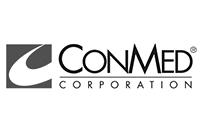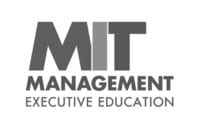In the age of rapid digital transformation, the ways in which businesses approach sales training are evolving. Gone are the days of static presentations and monotonous training sessions. In the current era, sales training has transitioned to a more dynamic, continuous, and holistic approach. In this article, we’ll explore the evolution of sales training, emphasizing continuous growth, virtual workshops, and the importance of aligning training with company ethos.
1. The Era of Continuous Growth
The Continuous Learning Model Highlight the shift from sporadic training sessions to a continuous learning model, which emphasizes consistent growth and adaptation.
Micro-learning & Just-in-Time Learning Discuss how bite-sized learning modules and on-demand resources empower sales reps to learn at their own pace and in response to immediate challenges.
2. Virtual Workshops The New Frontier
The Rise of Virtual Workshops Explore how the pandemic has accelerated the shift to virtual training sessions, and why they are here to stay.
Advantages of Going Virtual Discuss cost-efficiency, scalability, accessibility across geographies, and the ability to bring in experts from around the world.
Making Live Virtual Learning Engaging Delve into interactive elements like polls, breakout rooms, and real-time feedback that make live virtual workshops as engaging, if not more so, than traditional sessions. Be sure to think of e-Learning modules as introductions and reinforcements to the live sessions.
3. Aligning Training with Company Ethos
Why Alignment Matters Discuss the importance of ensuring that sales training is not just about techniques but is rooted in the company’s values and ethos.
Case Studies Provide real-life examples of companies that have successfully integrated their ethos into their sales training programs.
Strategies for Alignment Offer actionable tips for businesses looking to ensure their sales training is in sync with their overarching company values.
4. The Future of Sales Training
Blended Learning Approaches Discuss the merger of e-Learning, live-virtual and face-to-face training sessions in a post-pandemic world.
The Role of AI and AR Explore how technologies like artificial intelligence and augmented reality are set to revolutionize sales training.
Personalization Delve into the future of personalized training paths tailored to the needs of individual sales reps.
5. Feedback Loops: The Heartbeat of Modern Sales Training
The Importance of Feedback Discuss how real-time and post-training feedback from participants can be a gold mine of insights. It helps trainers understand what’s working, what’s not, and where there are gaps.
Tools and Platforms Like Allego Highlight how platforms such as Allego provide valuable analytics and feedback mechanisms. These tools can track engagement, test results, and even pinpoint specific modules or sections where learners might be struggling.
From Feedback to Action Emphasize the importance of not just collecting but acting on feedback. This could involve refining course content, introducing new modules, or even changing the mode of delivery.
Fostering a Culture of Open Communication Encourage companies to create an environment where sales reps feel comfortable sharing their training experiences, challenges, and suggestions for improvement. This open dialogue can lead to more tailored and effective training sessions.
In today’s fast-paced and ever-evolving business landscape, it’s paramount for companies to stay ahead of the curve, especially in areas as crucial as sales training. By embracing these five pillars of modern mastery – leveraging technology for continuous growth, utilizing virtual workshops for flexibility and scale, integrating the company ethos into training programs, fostering a culture of peer-driven learning, and embracing metrics for data-driven insights – businesses can ensure that their sales teams are not only well-prepared but are also adaptable, resilient, and primed for success. In the end, the modernization of sales training is more than just a strategic shift; it’s an investment in the future success and sustainability of the business.





























